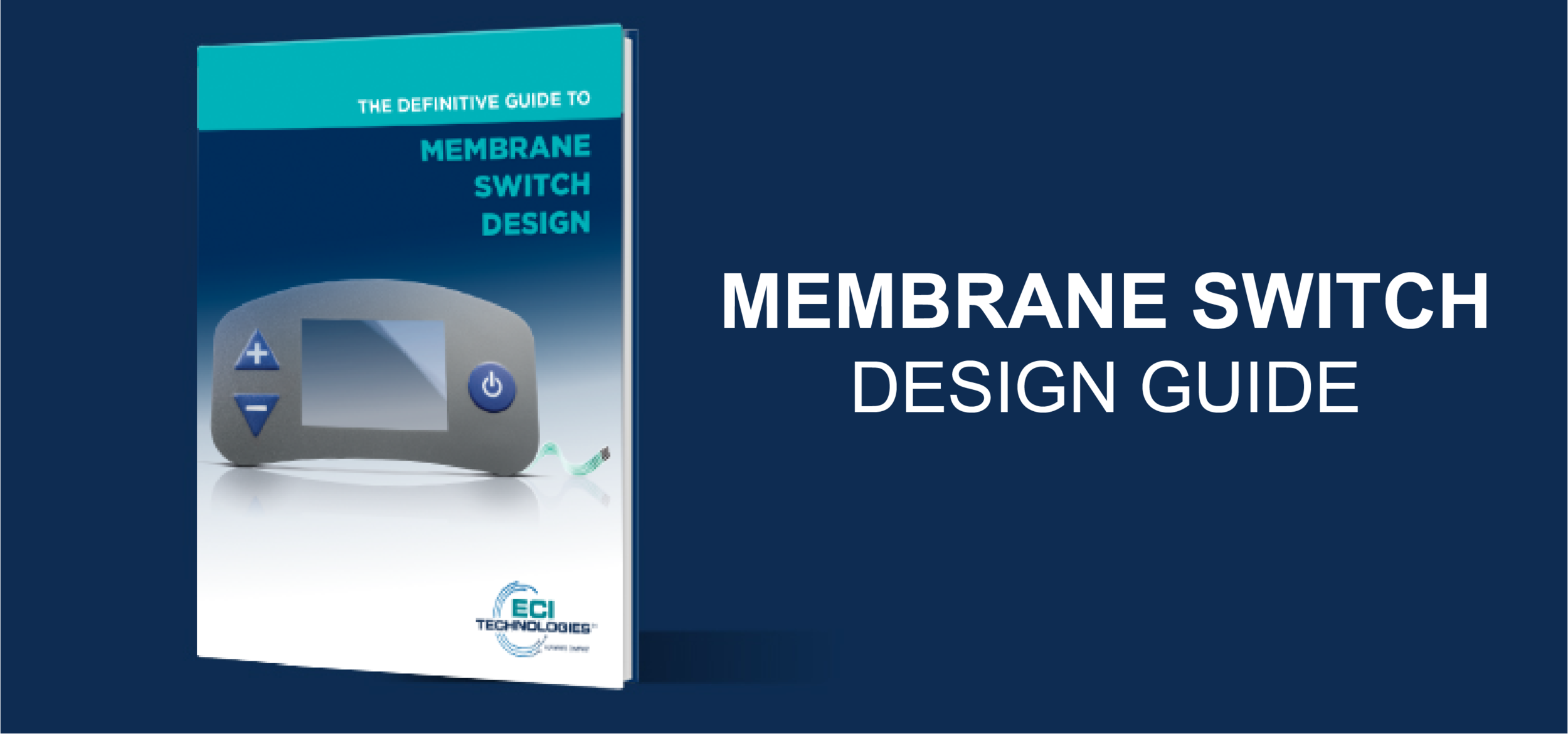A Comprehensive Guide to Membrane Switches for Product Designers
A Comprehensive Guide to Membrane Switches for Product Designers
Blog Article
Recognizing the Value of Membrane Switches in Interface
Membrane buttons are essential elements in the design of reliable interface, promoting not just performance yet also enhancing aesthetic appeal and user communication. Their one-of-a-kind attributes, such as resistance to customizable styles and environmental variables, make them appropriate for a diverse variety of applications across several industries. As we check out the future trends and different benefits associated with Membrane innovation, it ends up being clear that these switches are greater than simply parts; they stand for a convergence of development and practicality. The implications of this modern technology on user experience deserve taking a look at additionally.
What Are Membrane Switches?

The spacer layer, which has sticky buildings, enables the separation of the circuit layer from the overlay, making certain that the switch stays in a non-activated state up until pushed. When stress is related to the overlay, it compresses the spacer layer, bridging the space and completing the circuit in the underlying layer. This layout not only decreases the physical area needed for conventional mechanical buttons however also enhances the toughness of the device, as Membrane switches are generally resistant to dirt, moisture, and various other environmental variables.
Frequently found in applications varying from consumer electronics to clinical devices, Membrane switches are important to modern-day innovation, giving a straightforward and effective user interface that lines up with contemporary style needs.
Advantages of Membrane Switches
While many button modern technologies exist, Membrane Switches offer distinct benefits that make them particularly preferable in different applications. One of the primary benefits of Membrane switches is their compact layout, which enables space-saving implementations in gadgets where realty is restricted. Their thin account not only improves visual charm however also promotes light-weight building and construction.
An additional significant benefit is their resistance to ecological elements. Membrane buttons are generally secured versus dampness, dust, and contaminants, making them ideal for use popular atmospheres, such as clinical tools and industrial equipment. This resilience prolongs the lifespan of the button, lowering maintenance prices and boosting reliability.
Moreover, Membrane switches can be personalized to meet certain design needs, integrating distinct graphics and colors that boost customer interaction. Their tactile responses choices can additionally be customized to provide a satisfying user experience. Furthermore, Membrane switches are economical, specifically in high-volume applications, as they can be produced effectively.
Applications in Various Industries

In the consumer electronic devices field, Membrane buttons are common in devices such as microwaves, washing devices, and push-button controls. Their tactile feedback and aesthetic choices enhance user experience while supplying a streamlined, modern look. Additionally, vehicle makers make use of Membrane switches in control panel controls and infomercial systems, where room is limited, and user engagement is crucial.
Additionally, the commercial market leverages Membrane buttons in control panels for equipment and devices, enabling user-friendly procedure in typically rough environments. Their resistance to chemicals and wetness ensures durability and dependability in these applications. Overall, the adaptability of Membrane Switches adds dramatically to their prevalent use, making them crucial in numerous technological domain names.
Design Factors To Consider for Membrane Buttons

When creating Membrane switches, numerous crucial considerations need to be taken into consideration to make sure ideal performance and user experience. First of all, the choice of products is crucial; picking durable, high-quality substratums can improve the switch's durability and resistance to ecological elements such as moisture and temperature fluctuations.
Secondly, the style of the graphic overlay should focus on clarity and convenience of usage. Icons and message have to be understandable, and the design should help with instinctive communication (membrane switches). Additionally, responsive comments is essential; including a responsive dome or various other mechanisms can improve the user experience by giving physical verification of activation
An additional vital element is the button's electric efficiency. Developers have to ensure that the conductive traces are effectively developed to minimize resistance and prevent signal interference. This entails assessing the required actuation force and guaranteeing compatibility with the digital elements they will certainly user interface with.

Future Trends in Membrane Technology
As modern technology remains to advancement, Membrane buttons are positioned to advance significantly, driven by developments in materials and producing techniques. One arising fad is the consolidation of advanced materials, such as versatile substratums and conductive inks, which improve resilience and lower the overall weight of Membrane buttons. These materials not only boost the responsive response yet likewise enable look at these guys for the style of buttons that can hold up against harsher environmental problems.
In addition, the combination of touch-sensitive modern technologies is transforming standard Membrane Switches into even more interactive interface. Capacitive touch sensors embedded within Membrane switch panels can provide a much more instinctive and responsive customer experience, lining up with the expanding demand for sleek, modern-day styles in consumer electronic devices.
Additionally, innovations in printing techniques, such as electronic and 3D printing, allow fast prototyping and modification of Membrane switches. This flexibility permits manufacturers to react useful source quicker to market demands and customer preferences.
Lastly, sustainability is ending up being a substantial emphasis, with suppliers exploring eco-friendly materials and procedures. As these patterns unfold, the future of Membrane modern technology guarantees enhanced capability, visual charm, and environmental responsibility, strengthening their function in sophisticated customer interfaces across numerous markets.
Conclusion
Finally, Membrane Switches stand for a crucial component in the layout of interface, integrating performance with visual adaptability. Their benefits, consisting of sturdiness and resistance to ecological elements, make them appropriate for varied applications throughout numerous sectors. Additionally, thoughtful layout factors to consider improve individual communication and experience. As advancements in technology proceed, the advancement of Membrane buttons is expected to more refine individual interfaces, driving development and boosting functionality in a significantly complex technological landscape.
Membrane switches are indispensable elements in the design of reliable individual interfaces, Our site promoting not just functionality but also improving aesthetic appeal and individual communication.Membrane Switches serve as a vital element in various user interfaces, assisting in a seamless communication in between users and electronic gadgets.While numerous button innovations exist, Membrane Switches deal distinctive advantages that make them especially desirable in numerous applications.Furthermore, Membrane switches can be customized to fulfill certain style needs, incorporating distinct graphics and shades that enhance user communication.In conclusion, Membrane Switches stand for an essential part in the design of individual interfaces, combining performance with visual flexibility.
Report this page